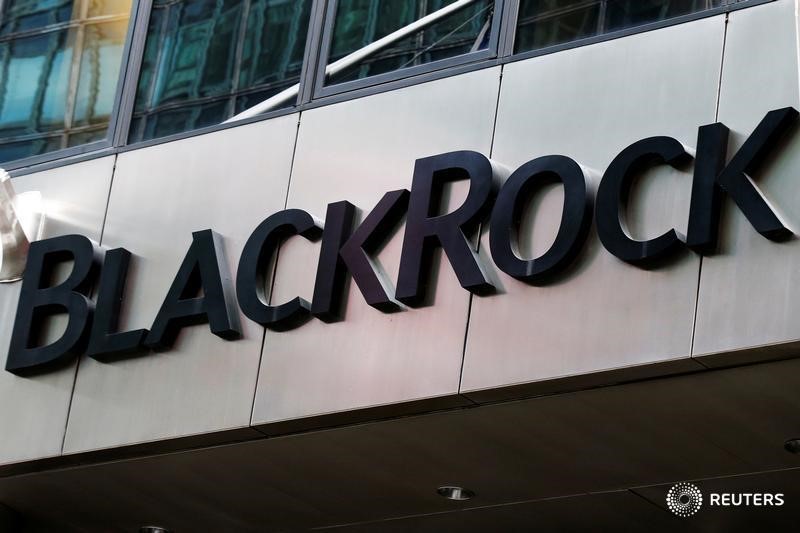This post was originally published on this site
https://i-invdn-com.akamaized.net/trkd-images/LYNXNPEH4I11S_L.jpg
HOUSTON/BOSTON (Reuters) – Top asset manager BlackRock (NYSE:BLK) could determine the outcome of a proxy fight between Exxon Mobil (NYSE:XOM) and a hedge fund seeking to reshape the oil giant’s board and future direction.
Exxon’s 12 directors are up for election on May 26, in a vote that offers a high profile test of BlackRock’s approach to getting companies set a course to limit global warming to below 2 degrees Celsius by 2050. Exxon stresses it is on a path to meet the Paris accord with a market-based approach.
Forced board changes or splitting chairman and CEO roles would be a blow to the company’s management. Unlike rivals that predict peak demand within a decade, Exxon’s board has built plans that forecast growing appetite for oil and gas.
BlackRock this year has vowed to hold corporate directors’ feet to the fire on environmental matters and has done so for instance by voting against a director on another high-profile corporate ballot.
Its votes could help hedge fund Engine No.1 gain seats on the board. The fund says Exxon continues to overspend on fossil fuels and lacks a clear strategy to prepare for a world demanding cleaner fuels. The May 26 vote has become the first major shareholder contest where climate change is the central issue.
BACKING ESG PROPOSALS
BlackRock declined to comment on its stance on Exxon. It is the second-largest Exxon shareholder with an about 6.6% stake, and has met with Exxon executives twice as often as Chevron (NYSE:CVX) and BP (NYSE:BP), according to its disclosures. Smaller investors have publicly supported Engine No.1’s directors.
The $9 trillion asset manager’s chief executive, Larry Fink, in January in his annual letter to CEOs asked for companies to lay out a strategy to operate in a net-zero economy.
In the first quarter, it backed three-quarters of environment and social-focused shareholder resolutions, compared with less than 10% a year ago.
Some activists say BlackRock’s voting to date has not fully met their expectations. But it has issued greater details about its voting practices, offering insight into what corporations should expect.
A recent disclosure showed BlackRock voted against a director at Woodside (OTC:WOPEY) Petroleum Ltd last month to express concerns with Woodside’s climate targets. Woodside declined to comment.
BlackRock also voted last year against two Exxon directors, citing a lack of progress in climate reporting. In both cases, directors were re-elected though Exxon ultimately released more greenhouse gas emissions data.
‘CONSTRUCTIVE’ TALKS
Some Exxon holders said the pressure is on BlackRock to uphold its tougher goals in voting Exxon shares this year. Governance advisers ISS, Glass, Lewis & Co and PIRC have recommended votes for some or all the dissident nominees for Exxon.
“Investors who understand the importance of overhauling Exxon’s board of directors know that major investors, like BlackRock and others, can push our efforts over the top,” said New York State Comptroller Thomas DiNapoli. New York’s pension funds have backed the call by Engine No.1 for change at Exxon.
Church Commissioners for England, which manages the Church of England’s investment fund, expects large asset managers “to vote for the entire dissident slate in line with their stated climate and sustainability goals,” said Bess Joffe, head of responsible investment.
Exxon’s talks with investors overall have been constructive, said spokesman Casey Norton. “We value their views and welcome input,” he said.
Exxon’s lack of a target for restricting customers emissions makes it likely BlackRock would not support its director slate, said Kathryn Mulvey, a campaign director at climate activists Union of Concerned Scientists. Engine No.1 “explicitly calls out” Exxon for failing to set so-called Scope 3, or customer emissions targets, she said.
However, Exxon has embraced measures to meet BlackRock’s and other investors’ climate and governance goals, including expanding its board, pledging to increase spending on lower-carbon initiatives, and reducing the intensity of its oilfield greenhouse gas emissions.

